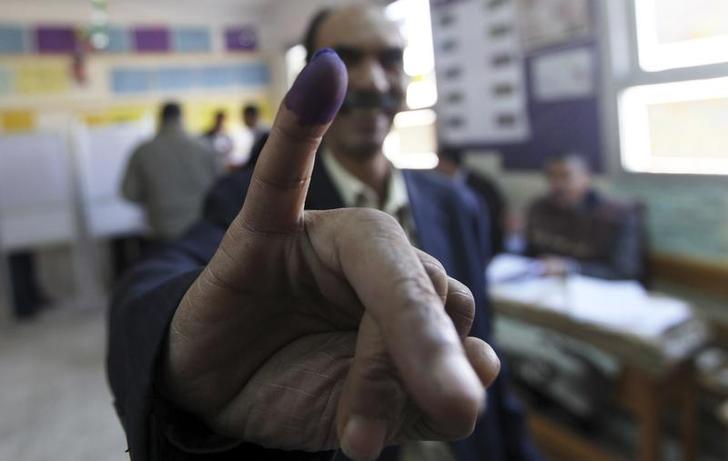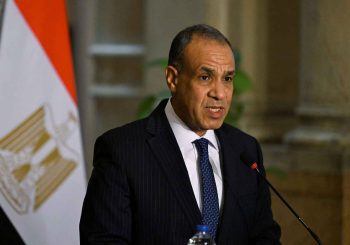When campaigning kicked off for the upcoming election of Egypt’s 2015 House of Representatives late September, several unlikely bedfellows emerged amid the complex web of alliances and coalitions.
Some dozen Coptic Christian names appeared on the Salafi Al-Nour Party lists, raising accusations of political opportunism and sharp criticism from senior members of Egypt’s Coptic Church who said that those Copts have “lost their credibility in front of both Christians and Muslims.”
Indeed many Copts believe that these candidates have both betrayed their faith and their community by allying with a political party which repeatedly expressed discriminatory views vis-a-vis Christians.
Experts, however, believe that the real culprit is the electoral system itself, which, they say, is the reason behind the expected fragmentation of the Coptic vote and why the ultra-conservative Al-Nour party have incorporated their religious “others” into their lists.
The elections law stipulates a 20 percent quota for Coptic Christians on party or coalition lists contesting the election. Lists of 15 candidates must include at least three Copts, while lists of 45 should have at least nine, to fill the total 120 seats allocated to the list system.
Emad Gad, analyst at Al-Ahram Center for Political and Strategic Studies, told Aswat Masriya that the inclinations of the Coptic vote have been clear according to voting patterns observed in the legislative and presidential elections of 2012.
During that period of extreme polarisation, Gad explained, 80 percent of Coptic votes went to the secular/liberal leaning Egyptian Bloc list, to confront the various Islamist lists in 2012 when the parliament law allocated the majority of the seats to the list system. In the presidential polls, the majority he said, voted for Mubarak-era candidate Ahmed Shafik against the Muslim Brotherhood’s Mohamed Mursi.
In both cases, the results were an overwhelming victory for Islamists, with the Muslim Brotherhood’s Freedom and Justice Party gaining 47 percent of seats in parliament, the Salafi al-Nour Party winning 24 percent and liberal and secular parties all together raking just under 30 percent, and Mursi snapping up the presidency.
Observers have explained that such results were expected considering Islamists’ ability to mobilize their supporters and the relative lack of street credence of the newly-emerging non-religious parties and alliances.
But with the military ouster of Mursi in July 2013 which was publically supported by both Al-Azhar’s top Imam and Coptic Pope Tawadros, Gad says, the Coptic vote is reclaiming its significance.
Isaac Ibrahim, head of the religious freedom unit of the Egyptian Initiative for Personal Rights (EIPR) told Aswat Masriya that he projects that tribal and family affiliations will influence the Coptic vote in constituencies where there is no competition between Islamists and non-Islamists, while more sectarian voting patterns will prevail when there is clear competition between the two.
He said that this election will witness less sectarian polarisation as a result of the “domineering presence” of the state and the absence of the Muslim Brotherhood, pointing out that Alexandria will likely see the highest rate of sectarian voting as it is a Salafi stronghold with a significant Coptic population.
That said, Ibrahim contended that Islamists will be very cautious in their use of religion so as not to exacerbate the existing societal polarisation, or aggravate the public refusal of using religion in politics in light of the authoritarian control over the electoral process.
Yousry Al-Azabawy, who heads the political systems unit of Al Ahram Center for Political and Strategic studies was more decisive in his projections, saying that most Coptic votes will go to Fi Hob Masr list (For the Love of Egypt), a coalition headed by former ex-military intelligence general Sameh Seif Elyazal, followed by El Gabha El Masriya Wa Tayyar El Estiqlal and finally Al Tahalof Al Gomhuri lil Qowa El Egtima’eya, headed by former Supreme Constitutional Court Justice Tahany El Gibaly.
He also believes that the Free Egyptians Party and the Egyptian Social Democratic Party will rake most of the individual seats of the Coptic bloc, since they reflect the community’s political leanings, adding that through his monitoring of the Coptic media and satellite channels over the course of campaigning the role of the Church has emerged as a strong force in guiding the Coptic vote.
Over 54 million eligible voters will choose a total 568 members in secret ballots, of which 448 will be elected via the individual system and 120 through party lists.
The first of two phases of voting ends today in 14 provinces, while the second phase will take place in Egypt and abroad from Nov. 21-23.
(Reporting by Viola Fahmy)







Comments (7)
xcn5bsn5bvtb7sdn5cnvbttecc
[…]that may be the finish of this post. Right here youll locate some web-sites that we feel you will value, just click the hyperlinks over[…]
ccn2785xdnwdc5bwedsj4wsndb
[…]we prefer to honor a lot of other online web-sites on the internet, even when they arent linked to us, by linking to them. Beneath are some webpages worth checking out[…]